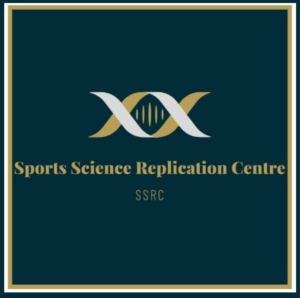
“Non-replicable single occurrences are of no significance to science”
(Popper, 1959, p. 64)
Sports and exercise science is a vast research field with many sub-disciplines and, as a result, there is a high amount of research conducted in the field. This ongoing research is important for us as sports and exercise coaches and practitioners to advance the knowledge in this constantly developing field. Research provides us with evidence for theories or concepts that assist with sports and exercise performance and gaining those small advantages over our competitors. Although it is essential to continuously update the available evidence, it is equally as important to make sure the research we conduct is well-designed and of high quality, and that we are building knowledge on solid foundations.
Yet, there are increasing concerns that there are common methodological and design issues in sports and exercise science including a focus on “exciting” results, insufficient scientific transparency, and importantly, too few replication studies, all of which could leave sports and exercise science research is a poor state and hinder advancement of knowledge (Halperin et al., 2018).
Replication is defined as retesting a claim using the same analyses and new data (Nosek and Errington, 2020) and is considered to be the cornerstone of science (Simons, 2014). By correctly replicating previous research, we can compare these outcomes to the original studies which will either increase or decrease our confidence in the research results. As a general rule, true results should be replicated repeatedly, therefore, replication must be used as foundations for future knowledge (Chambers and Sumner, 2012). If original research cannot be replicated, our commonly accepted research practices could be questioned and we may be basing our coaching philosophies or ideas on methods that are not actually effective after all.
The “replication crisis” originated in the field of psychology where a highly publicized case of fraud created many news headlines and a large scale replication project called the Reproducibility Project: Psychology found it difficult to successfully replicate selected studies (Open Science Collaboration, 2015). This kickstarted the open science movement in psychology where increased numbers of researchers are incorporating more transparent and open practices into their daily research.
As there are similarities between psychology and sports and exercise science, there is reason to believe that this field is suffering from the same replicability issues (Halperin et al., 2018). This belief is also strengthened by the common issues stated earlier in addition to small sample sizes in our studies or low statistical power. Numerous researchers within the field have published calls for increased replication studies to assess how trustworthy or reliable our current published research is (Caldwell et al., 2020; Heneghan et al., 2012; Knudson, 2017).
The new Sports Science Replication Centre based in Dublin, Ireland, has been established to investigate the concerns about replicability in the field. The overall goal of this centre is to create a worldwide collaborative lab network which will critically examine the replicability of current research findings. This centre aims to enhance research standards in the field and we also encourage researchers and practitioners to focus on total evidence produced rather than an emphasis on single studies with novel or unexpected results (Ioannidis, 2012).
The Sports Science Replication Centre is currently recruiting volunteer laboratories to collaborate with us and we encourage anyone who is an applied sports and exercise science researcher to come on board and spread the news about this initiative which is the first of its kind in the field. The expression of interest form is available at https://forms.office.com/r/iL0z0AFhVC and more information about the Sports Science Replication Centre at https://ssreplicationcentre.com
References
Caldwell, A.R., Vigotsky, A.D., Tenan, M.S., Radel, R., Mellor, D.T., Kreutzer, A., Lahart, I.M., Mills, J.P., Boisgontier, M.P., Boardley, I., Bouza, B., Cheval, B., Chow, Z.R., Contreras, B., Dieter, B., Halperin, I., Haun, C., Knudson, D., Lahti, J., Miller, M., Morin, J.B., Naughton, M., Neva, J., Nuckols, G., Peters, S., Roberts, B., Rosa-Caldwell, M., Schmidt, J., Schoenfeld, B.J., Severin, R., Skarabot, J., Steele, J., Twomey, R., Zenko, Z., Lohse, K.R., Nunan, D., 2020. Moving Sport and Exercise Science Forward: A Call for the Adoption of More Transparent Research Practices. Sport. Med. 50, 449–459. https://doi.org/10.1007/s40279-019-01227-1
Chambers, C., Sumner, P., 2012. Replication is the only solution to scientific fraud. Guard.
Halperin, I., Vigotsky, A.D., Foster, C., Pyne, D.B., 2018. Strengthening the practice of exercise and sport-science research. Int. J. Sports Physiol. Perform. 13, 127–134. https://doi.org/10.1123/ijspp.2017-0322
Heneghan, C., Perera, R., Nunan, D., Mahtani, K., Gill, P., 2012. Forty years of sports performance research and little insight gained. BMJ 345. https://doi.org/10.1136/bmj.e4797
Ioannidis, J.P.A., 2012. Scientific Credibility: A Fluctuating Trajectory Why Science Is Not Necessarily Self-Correcting. Perspect. Psychol. Sci. 7, 645–654. https://doi.org/10.1177/1745691612464056
Knudson, D., 2017. Confidence crisis of results in biomechanics research. Sport. Biomech. 16, 425–433. https://doi.org/10.1080/14763141.2016.1246603
Nosek, B.A., Errington, T.M., 2020. What is replication? PLoS Biol. 18, 1–8. https://doi.org/10.1371/journal.pbio.3000691
Open Science Collaboration, 2015. Estimating the reproducibility of psychological science. Science 349, aac4716. https://doi.org/10.1126/science.aac4716
Popper, K., 1959. The Logic of Scientific Discovery, Classics S. ed. London: Routledge.
Simons, D.J., 2014. The Value of Direct Replication. Perspect. Psychol. Sci. 9, 76–80. https://doi.org/10.1177/1745691613514755

Leave A Comment